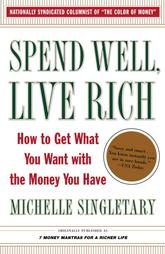
Wake Up!
Carter G. Woodson wrote a book called the Miseducation of the Negro about how African Americans were being taught to think in ways that were detrimental to the health of their communities and that blinded them to freedom. Harriett Tubman said if she could have convinced more slaves that they were enslaved she could have freed thousands. In the film What Black Men Think, Janks Morton says “Wake Up!”
The film was made on a budget around $8,000 dollars and was shot solely by Janks Morton. Despite this fact, or perhaps because of it, the film is of very high quality, moves at a brisk pace, and continuously awes the viewer as it destroys stereotypes that have been proliferated in the African American community. It then goes on to find out why the stereotypes have been created in the first place and why leadership in the Black community has failed to disprove them.
The film interviews African American political thinkers as well as brothers off the street and asks them their opinion of where the African American community has gone wrong and what we need to do to fix it. There are newsworthy names and intellectuals on the film such as NPR correspondent and author Juan Williams, Linguist and author John McWhorter, and author Shelby Steele who all make appearances throughout the film commenting on their hopes and concerns about the African American male.
What is probably the most powerful part of the film is the destruction of the myth of African American underachievement. Janks asks numerous people, including children, whether there are more African American men in jail or in college. Their answer is probably the same as yours if you haven’t seen the film or the
PSA. He then destroys this myth and shows that our people, African Americans, are better educated then we believe.
Now I can’t say I agree with everything in the film. Janks is a little further to the right than I am, and my opinion of utilizing the government for advancement and his are very different. However, his passion for reuniting the African American family is awe inspiring. What he has created is a film that will help African Americans better understand one another and I commend him for that.
I was very moved by the film and would encourage anyone who is concerned with the African American Community to purchase the film at his website. Some of you movie critics out there might think that this review is a bit too glowing and that I might be trying to sell the film too hard, but this film opened my eyes to some facts about my people that have lifted a burden from my heart in many ways.
Go check it out..
Wake Up!














